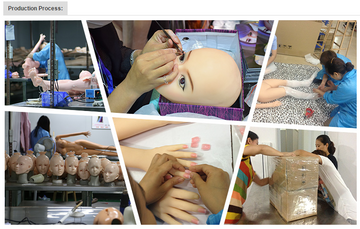Silicone dolls have surged in popularity for companionship, art, and adult use. But with their rise comes critical questions: Are they legal? What hidden risks come with ownership? In this post, we break down the legal gray areas, safety concerns, and ethical dilemmas to empower informed decisions.
1. Legal Status: Navigating a Gray Landscape
The legality of silicone dolls varies globally and hinges on context and usage:
a) Ownership
• Most countries: Silicone dolls are legal to purchase and own as adult products or collectibles. No law explicitly bans their possession unless used for illegal activities .
• Exceptions: Some regions restrict "obscene materials" or require age verification for online purchases.
b) Commercial Use
• Sexual services: Deploying silicone dolls in "adult experience" venues (e.g., hourly rentals) operates in a legal gray zone. While not classified as prostitution in China, such setups face scrutiny for promoting indecency .
• Public display: Exhibiting dolls in public spaces may violate indecent exposure laws depending on jurisdiction.
c) Cross-Border Laws
• Customs agencies may seize dolls deemed "indecent" during import. Always verify destination country regulations.
2. Key Risks of Purchasing Silicone Dolls
a) Health and Safety Hazards
• Hygiene risks: Improperly cleaned dolls can harbor bacteria, leading to infections. Reports highlight lax disinfection in rental services .
• Material toxicity: Low-quality silicone may release harmful chemicals (e.g., phthalates) when heated. Opt for medical-grade, FDA-approved materials .
• Physical damage: Cheap dolls often crack or degrade, posing choking hazards if parts detach.
b) Legal Liabilities
• Property disputes: Customized dolls with realistic features may infringe copyright laws if replicating trademarks.
• Criminal charges: Using dolls for illegal acts (e.g., child exploitation imagery) can lead to prosecution, even if the doll itself is legal.
c) Ethical and Psychological Concerns
• Objectification debates: Critics argue dolls perpetuate harmful gender norms or enable harmful fantasies .
• Addiction: Over-reliance on dolls for emotional support may isolate users from real-world relationships.
d) Privacy Risks
• Data leaks: AI-integrated dolls (e.g., voice-enabled models) may collect sensitive user data, risking breaches .
3. How to Mitigate Risks
1. Verify legality: Consult local laws or legal experts before purchasing, especially for commercial use.
2. Choose reputable sellers: Prioritize brands like Yolo Doll or Real Doll that offer certifications and warranties .
3. Prioritize safety:
◦ Opt for non-porous, medical-grade silicone.
◦ Disinfect dolls regularly with UV light or hospital-grade cleaners.
4. Avoid customization pitfalls: Ensure custom features (e.g., facial recognition) comply with privacy laws.
4. The Future of Silicone Dolls: Trends and Regulations
As AI integration advances, lawmakers are scrambling to address:
• Sentient dolls: Future models with emotional AI could blur lines between tools and companions, triggering new ethical frameworks .
• Global standardization: Expect stricter regulations on materials, data security, and commercial use.
Final Thoughts
Silicone dolls are legal to own in most regions but carry significant risks—from health hazards to ethical controversies. By choosing quality products, adhering to local laws, and prioritizing safety, users can enjoy these innovations responsibly.
Ready to explore safely? Partner with certified manufacturers and stay ahead of regulatory changes.




